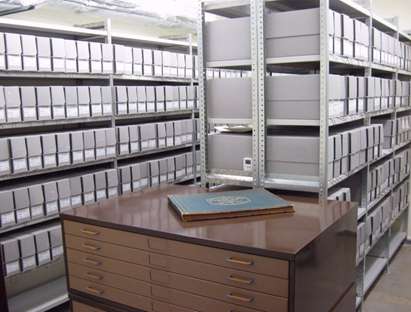<--The link to access the database is currently disabled. We are sorry about this and are working to re-establish the website:-->
|
The Albert Einstein Archives Online |
|
The Archives' Holdings Folder List
The Archives' holdings are organized by folders, many of them arranged according to subjects, a great help when engaging in preliminary research. You can see a general overview below.
Click on the following link to access it:
Folder List
Textual material is divided into three main groups:
 Scientific material:
Scientific material:
Manuscripts of Einstein's scientific papers and lectures, his correspondence with scientific colleagues and his lecture notebooks. This material includes the original manuscripts of Einstein's articles on such topics as the general theory of relativity, quantum mechanics, and the unified field theory. It also contains his correspondence with the most important physicists of the 20th century, e.g., Max Plank, Niels Bohr, Max Born, Werner Heisenberg, Erwin Schrödinger and Hendrik A. Lorentz.
Non-scientific material:
Manuscripts of articles, speeches, lectures, poems and aphorisms as well as correspondence dealing with matters outside the field of science such as politics, society, philosophy and culture. This material includes Einstein's writings on such subjects as pacifism, Judaism, the nuclear threat, and civil rights as well his correspondence with famous contemporaries, e.g., Sigmund Freud, Franklin D. Roosevelt, Walther Rathenau, Thomas Mann, Bertrand Russell and Albert Schweitzer.
Biographical material:
Einstein's personal documents, family correspondence and travel diaries.
